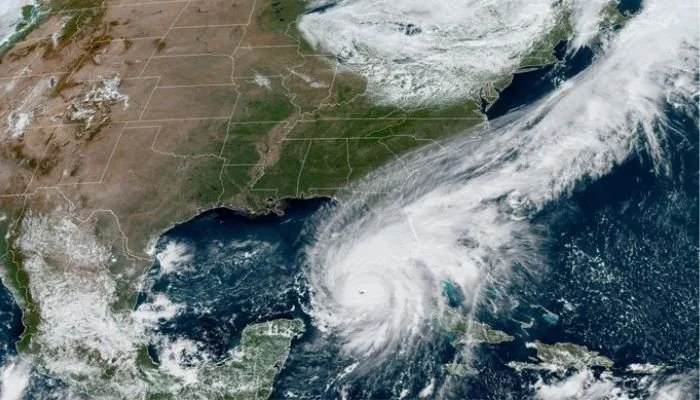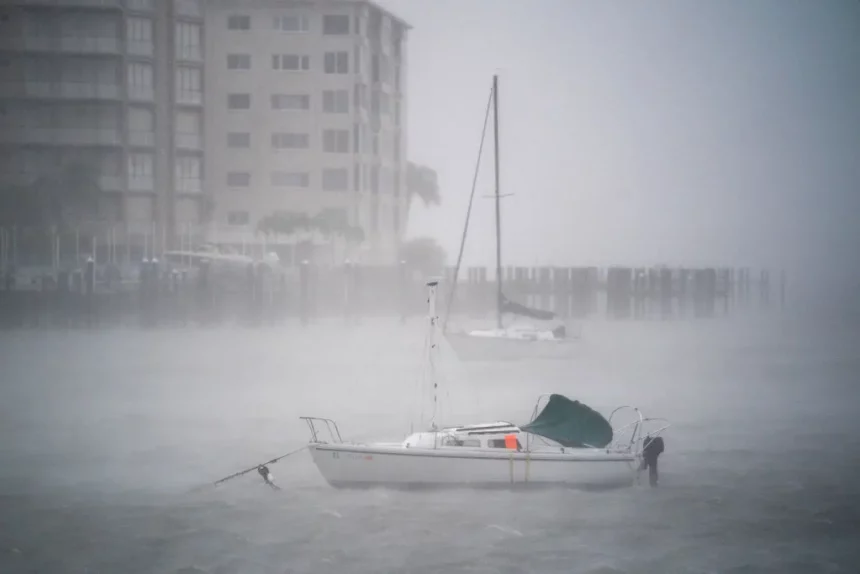Research conducted immediately after Hurricane Ian shows that climate change increased rainfall by at least 10%.
The study from Thursday, which was not peer-reviewed, contrasted peak rainfall rates during the actual storm with around 20 different computer simulations of a model with Hurricane Ian’s characteristics crashing into the Sunshine State in an environment without anthropogenic climate change.
According to Michael Wehner, a climate scientist at Lawrence Berkeley National Lab and a research co-author, “the real storm was 10% wetter than the storm that may have been.”
By the time it finished, Ian was expected to have dropped up to two feet (61 cm) of rain in certain areas of Florida.

In a study published in Nature Communications earlier this year, Wehner and Kevin Reed, an atmospheric scientist at Stony Brook University, examined the hurricanes of 2020 and discovered that during their rainiest three-hour periods, they were more than 10% wetter than in a world without greenhouse gases trapping heat. To attribute Hurricane Ian, Wehner and Reed used the same method that is generally recognized in science.
Physics has long held that the atmosphere can store 7% more water for every additional degree of warmth in the Celsius (1.8 degrees Fahrenheit) scale. It should have rained roughly 5% more this week because the Gulf of Mexico was 0.8 degrees warmer than average. It turns out that reality was considerably worse. The hurricane produced 10% more rainfall, according to flash research.
Ten percent might not seem like much, but Reed pointed out that two inches, or 10% of 20 inches, is a significant amount of rain—especially when added to the 20 inches that have already fallen.
Gabriel Vecchi, an atmospheric scientist at Princeton University who was not involved in the work, noted that similar feedback processes of stronger storms with warmer weather have been observed in other studies.
In general, a warming planet does make hurricanes rainier, according to MIT hurricane researcher Kerry Emanuel. But he said that he feels awkward making predictions about specific storms. He stated, “We had anticipated this business above extremely, very high rain due to climate change.” “More storms like Ian will occur.”
In an email, Princeton’s Vecchi stated that since global warming isn’t going away, if the globe is to recover from disasters, “we need to plan for wetter storms going forward.”












